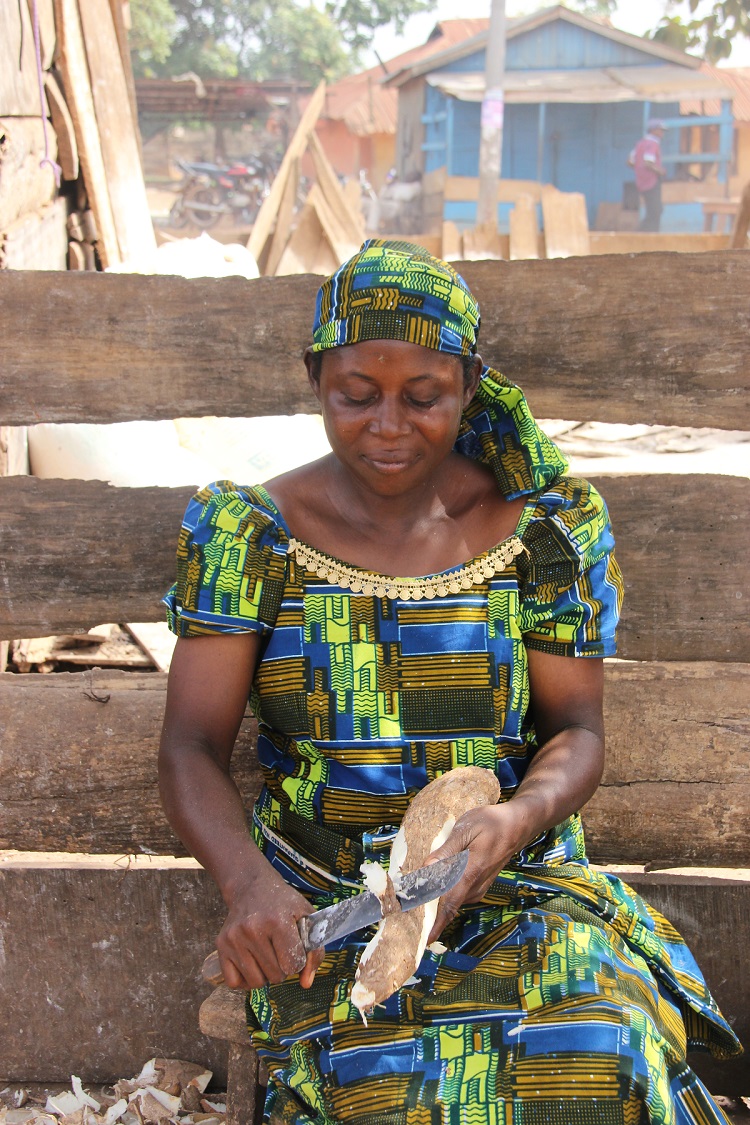Root, tuber and banana (RTB) crops are vital for food security and income generation for millions of people across sub-Saharan Africa. Breeders of RTB crops are continuously developing new varieties better adapted to pests and diseases, climate change, new markets and shifts in consumption. However, many of these varieties meet with significant problems of acceptability to men and women stakeholders in RTB value chains, hindering adoption and dissemination.
To meet this challenge, NRI is collaborating on a project, led by CIRAD - the French agricultural research and international cooperation organisation, as part of the broader RTB Program with the CGIAR, which aims to link local consumer preferences with breeders’ selection criteria, to encourage adoption along the value chains of cassava, yam, sweet potato and cooking banana products. The focus countries are Benin, Cameroon, Ivory Coast, Nigeria and Uganda.
NRI's Dr Lora Forsythe leads the research area aimed at understanding the socio-economic and cultural drivers of food quality preferences, and developing food product profiles to support crop breeding programmes. Achievements in 2019 included a participatory and interdisciplinary study of quality preferences and their relationship to factors of gender and social difference, conducted by eight research teams in West and East Africa.
The study has generated valuable knowledge of the quality traits that determine user preferences and RTB varietal adoption, and helped to inform a broader initiative RTB’s work on gender responsive product profiling at https://www.rtb.cgiar.org/a-systematic-gender-responsive-and-evidence-based-customer-and-product-profiling-approach-for-breeding/. The research methodology is published (online) in the International Journal of Food Science and Technology.
In another areas of work, insights from a study on cassava commercialisation in southern Nigeria and Malawi, by Dr Forsythe and Professor Adrienne Martin, were presented at the Development Studies Association annual conference and the paper submitted for publication.
Based on mixed-method, longitudinal panel interviews and household surveys conducted between 2009 and 2014, the study examined changes in smallholder livelihoods brought about through the growth in cassava markets. It investigated whether and how smallholders were participating and benefiting from the growth in demand, and whether the processes were inclusive.
Using a new conceptual framework, the study demonstrates that there are significant differences in smallholder participation in cassava commercialisation processes that vary by geography, gender and ethnicity as these value chains are deeply embedded within a specific social context.
Differences are a result of distinct commercialisation strategies, involving both ‘commercial’ and ‘non-commercial’ behaviour, which can be linked to different levels of women’s agency, the social conditions influencing access to key resources, and ability and willingness to cope with risk. This study presents conceptual and empirical reflections that question the mainstream development narratives regarding smallholders and commercialisation.
To find out more about:

